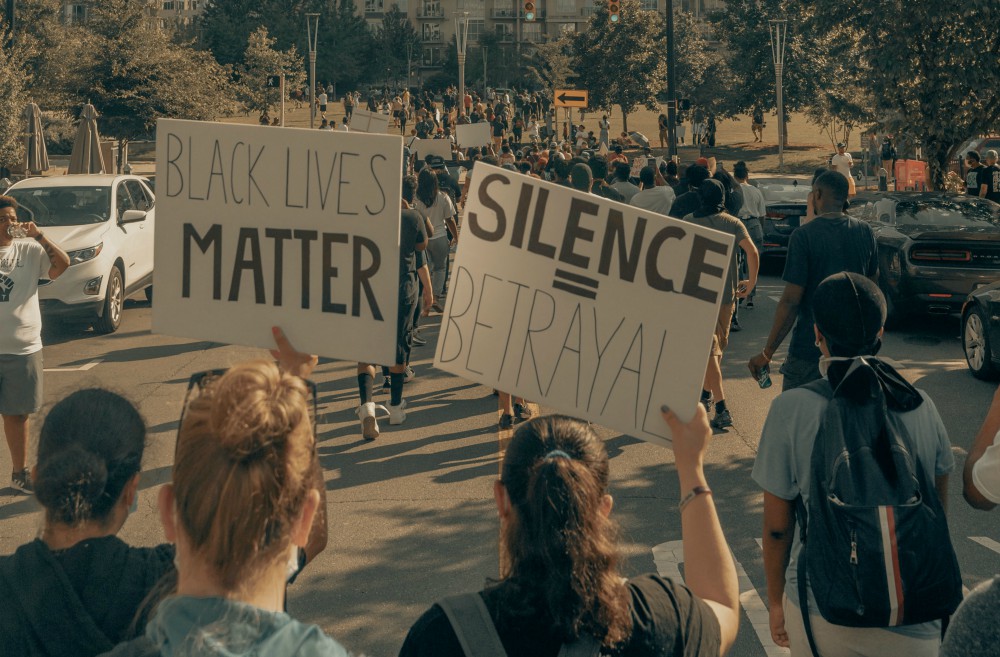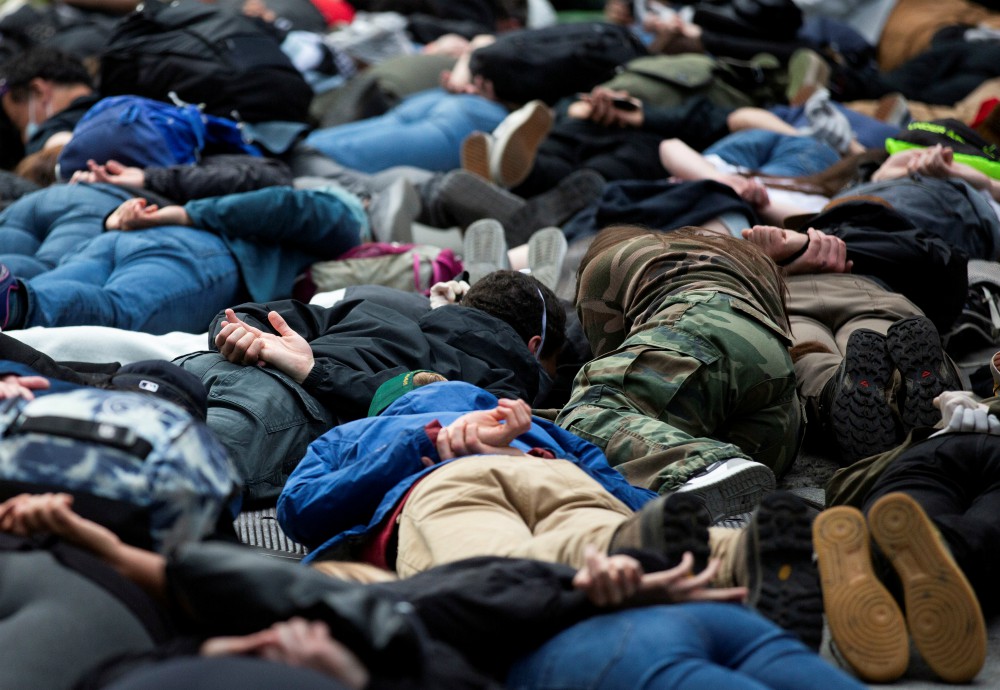
(Unsplash/Clay Banks)
Last week, I woke up with a pain deep within my very being. It was the morning after Memorial Day, and I could not help but feel the ache in my heart ... It's happened again.
Police brutality, racial profiling and the killing of black and brown people have become too acceptable and too commonplace. This is an anti-life reality too long ignored by those of us who will never be stopped by police for driving, running, walking, shopping or doing any other everyday activity while white. Not having to worry about constant danger from those who are pledged to protect is, in itself, white privilege.
For months, our energy has been inwardly focused. Many of us have been privileged to stay home and stay safe during the coronavirus pandemic. Some, a large percentage of whom are people of color paid low wages, were suddenly deemed "essential workers" to serve those sheltering in place by providing groceries, takeout meals, garbage removal, and package delivery.
The surreal reality of quarantine led to pent-up energy, which — I was recently reminded — the laws of physics tell us must eventually be released.
I must not have been the only one to wake up with a pain deep within my very being, because suddenly people were taking to the streets across the country. Too angry, frustrated and bewildered to stay at home, they reacted to the most recent instance of death from systemic racism, sparked by the nine-minute video of George Floyd being killed by a white police officer who stopped his very breath through physical force, taking a knee to his neck while his colleagues watched.
What has been happening to black and brown people out of sight for hundreds of years is now being shown the light of day through technology and video. The veil has been lifted. We must not turn a blind eye.
I turned to The Cross and the Lynching Tree by the late theologian James Cone to try to make sense of the pain I was feeling. "Hope in black possibility, in the dream of a new world, had to be carved out of wretched conditions, out of a world where the possibility of violent death was always imminent. … African Americans did not have to see black bodies swinging on southern trees or personally experience mob violence to know that they daily risked death."
Advertisement
The pent-up energy and frustration were not just from quarantine, but have been centuries in the making. The statement issued this week by the Sisters of St. Joseph of Peace, my predominantly white congregation, recognizes that the "white privilege that we enjoy creates layers of oppression in our society that are difficult for us to acknowledge much less overcome, yet they create tensions and smoldering resentments that add fuel to the fires that burn when a high-profile, modern-day lynching occurs."
The human heart, when confronted with such painful realities, cries out. The interfaith community used the language of lament to organize prayer vigils to mark the more than 100,000 lives that have been lost from COVID-19 in the United States. During the National Day of Mourning and Lament prayer service, the Rev. Jim Wallis lamented "what the virus has revealed … the racially disproportionate unequal suffering in sickness, in death" from the coronavirus. Praying for George Floyd by name, Wallis also lamented the "virus of white supremacy."
Theologian Bryan Massingale's work on lament has informed my own work on becoming anti-racist. I say anti-racist because I recognize and lament my own unconscious bias and the white privilege I experience. I find the language of becoming anti-racist more helpful than trying to pretend I have not been formed by an overly racialized and racist society. This work is for the long haul and is not meant to make me feel better, but to commit to making our society better and our human family whole.
I began this reflection by sharing the pain I felt deep within my being the day after Memorial Day. Every day since, the news has dealt another punch to the gut. This makes sense and, ultimately, can help us to recognize and name the reality of systemic racism and commit to becoming anti-racist individually and collectively.
Massingale offers a key insight in his work The Systemic Erasure of the Black/Dark-Skinned Body in Catholic Ethics. We must engage racism "viscerally at a 'gut level' that cannot be addressed solely through rational discussion."
The thousands of people lying down on the streets for nine minutes in silence know this. Those sitting silently in front of the White House with their hands in the air know this. Any one of us who finds our heart broken or stomach turned by police brutality or tears flowing at the pain, fear and frustration of young people of color know this.

Protesters in Seattle lie down for a minute of silence June 2 in the position George Floyd was in when he died. (CNS/Reuters/Lindsey Wasson)
The visceral reaction is our heart, our God-given inmost being, telling us something we need to hear. What matters most is what we do next.
"We need to lament, mourn, and grieve our history," writes Masssingale. This "facilitates the emergence of something new, whether a changed consciousness or a renewed engagement with external events. It is indeed a paradox of protest and praise that leads to new life."
I am hopeful that the mass mourning and lament taking place across our country — truly a paradox of protest and praise — will lead to new life rather than silently allowing more death. The vast majority of protesters have reacted peacefully and creatively, many wearing face masks to protect others while they themselves face a militarized police force. Tragically, force has been used in many instances against the peaceful protesters, including the shocking use of tear gas in front of the White House to clear the way for a now infamous photo-op.
What matters is that we lament, mourn and grieve this history-in-the-making and respond and organize in love.
"The religion of Jesus makes the love-ethic central," wrote theologian Howard Thurman in his prophetic 1949 work Jesus and the Disinherited. Jesus centered his "simple" teaching on the commandment to love God and neighbor. "Once the neighbor is defined, then one's moral obligation is clear. … Neighborliness is nonspatial; it is qualitative … permitting no barriers between."
Lament helps us to recognize neighbors we may have denied. Loving action in solidarity helps to bring us together and heal divisions. We the people can do this.
May we all lament our racist history and present and commit to loving our neighbor, all our neighbors. Our very future depends on it.
[Susan Rose Francois is a member of the Congregation Leadership Team for the Sisters of St. Joseph of Peace. She was a Bernardin scholar at Catholic Theological Union and has ministered as a justice educator and advocate. Read more of her work on her blog, At the Corner of Susan and St. Joseph.]







